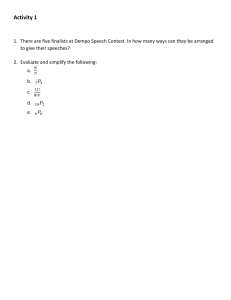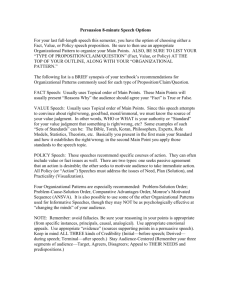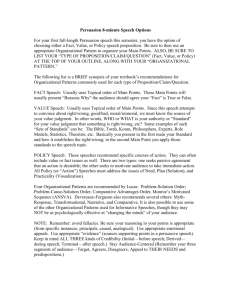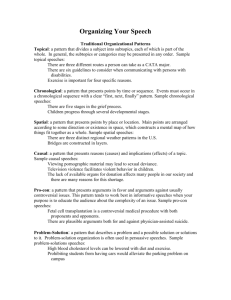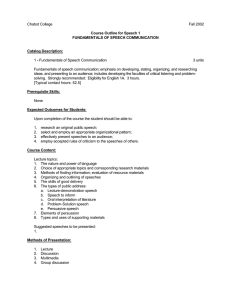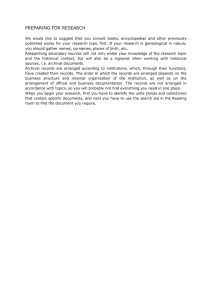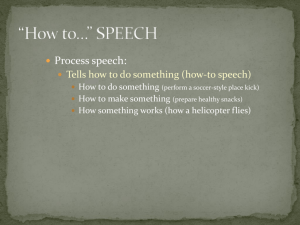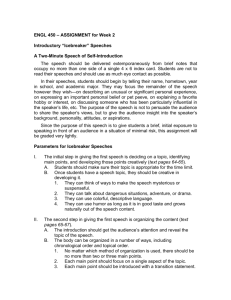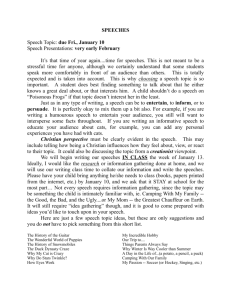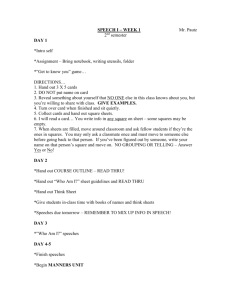Organizing Your Speech: True/False Questions
advertisement
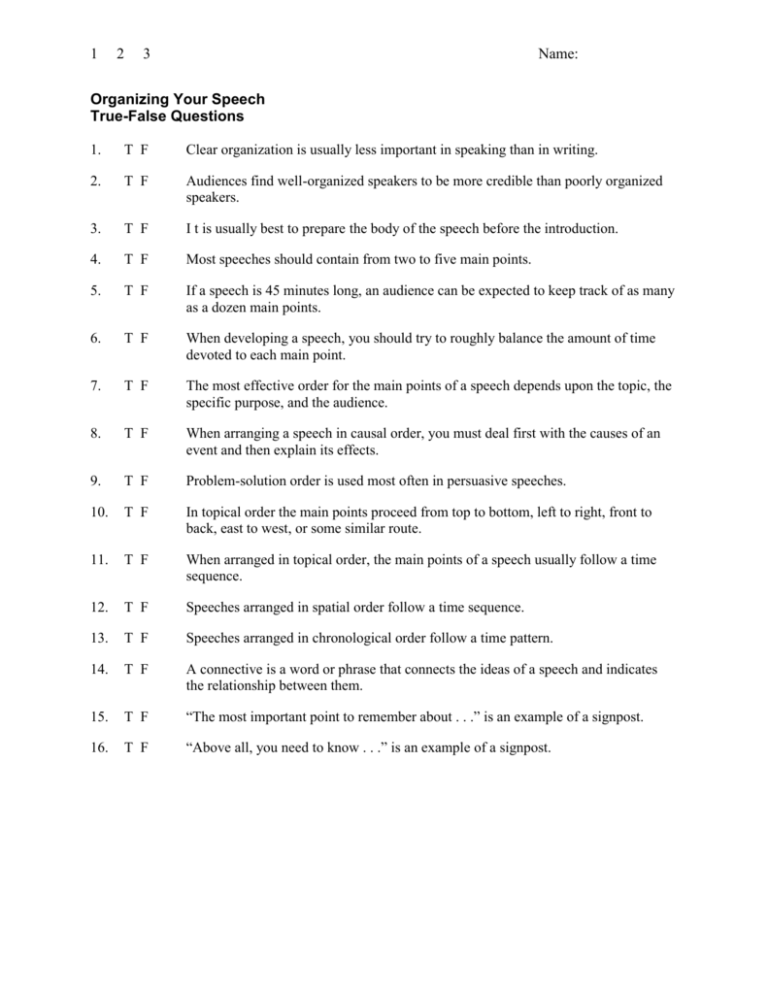
1 2 3 Name: Organizing Your Speech True-False Questions 1. T F Clear organization is usually less important in speaking than in writing. 2. T F Audiences find well-organized speakers to be more credible than poorly organized speakers. 3. T F I t is usually best to prepare the body of the speech before the introduction. 4. T F Most speeches should contain from two to five main points. 5. T F If a speech is 45 minutes long, an audience can be expected to keep track of as many as a dozen main points. 6. T F When developing a speech, you should try to roughly balance the amount of time devoted to each main point. 7. T F The most effective order for the main points of a speech depends upon the topic, the specific purpose, and the audience. 8. T F When arranging a speech in causal order, you must deal first with the causes of an event and then explain its effects. 9. T F Problem-solution order is used most often in persuasive speeches. 10. T F In topical order the main points proceed from top to bottom, left to right, front to back, east to west, or some similar route. 11. T F When arranged in topical order, the main points of a speech usually follow a time sequence. 12. T F Speeches arranged in spatial order follow a time sequence. 13. T F Speeches arranged in chronological order follow a time pattern. 14. T F A connective is a word or phrase that connects the ideas of a speech and indicates the relationship between them. 15. T F “The most important point to remember about . . .” is an example of a signpost. 16. T F “Above all, you need to know . . .” is an example of a signpost.
